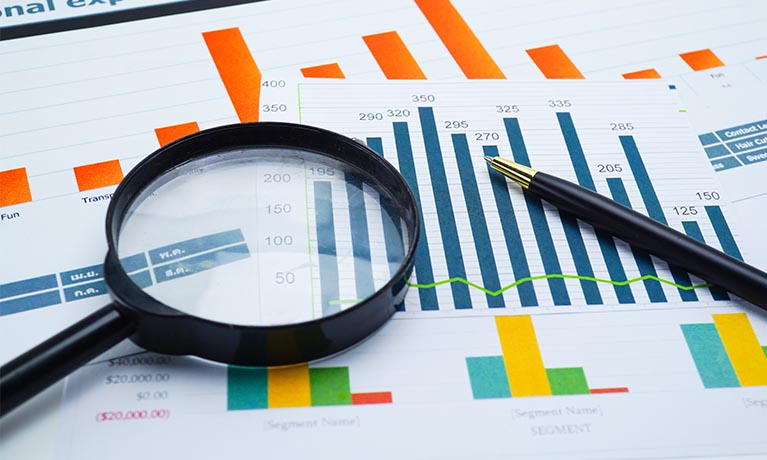By Dr Alessandro Merendino and Professor Maureen Meadows, Centre for Business in Society
Since the Carillion scandal of 2018, it has been argued that the accountancy profession needs to transform itself to improve its services. Recently, critics have suggested that the profession is not moving fast enough. One area facing radical change is the sector’s use of new technology. Forbes, Kaplan and EY have all recently argued that the accountancy and finance firms that keep up with the latest technologies and techniques, including Big Data, are the ones that will succeed in the near future. New technology is impacting every business, and the accounting and finance profession is already adapting, for instance in its use of automated software programmes that reduce the burden of task-oriented projects. The role of accounting and finance professionals is therefore already evolving, alongside the new technologies; yet such changes can be painful, if organisations fail to put the right capabilities in place.
Data is at the core of the accountancy and finance profession; therefore, big data can support professionals in the sector to deliver more value to their businesses (ICAEW, 2019). Accountancy and finance professionals require novel capabilities to harness, analyse and understand the potential of big data (ICAS, 2021). Big data can have a range of diverse applications. Below, we explain what big data means, the applications it can support and the added value it can offer.

What does big data mean?
Big data is defined as:
“high-volume, high-velocity and high-variety information assets that demand cost-effective, innovative forms of information processing for enhanced insight and decision making” (Gartner 2001)
Big data have different forms:
- External unstructured data: e.g. social media and mobile data
- External structured data: e.g. government data and public service data
- Internal structured data, e.g. the financial data
- Internal unstructured data: e.g. videos, GPRS and images about the warehouse
What are the main big data applications in accounting and finance?
Professionals in accountancy and finance can make use of big data to produce better data-driven decisions. TDWI argues that accountants and finance professionals may not be sufficiently aware of the effective use of Big Data. The following are examples of some big data applications:
Risk management: Risks addressed by accountancy and finance professionals include those associated with fraudulent activities, mergers and acquisitions, and credit and liquidity risks. Big data can help to improve risk management through an analysis of customer behaviour. For instance, social media can trigger early warning systems of shifts in consumer behaviour, anticipating associated risks (Strategic Finance, 2020). Accountants and finance professionals can therefore better manage risks by integrating diverse sets of data into their analyses.
Financial reporting: With big data, financial reporting is not limited to analysing historic financial data on a monthly, quarterly, or annual basis. Employing big data and data analytics, accountants can provide timely insights to auditors, the board of directors and the head of finance and CFO. Accounting software packages designed for SMEs or large corporations offer the possibility of real-time access to data.
Management accounting: Traditionally, management accountants analyse financial data to monitor performance, improve efficiency and reduce costs. Modern management accounting leverages big data from different sources, such as social media and Google analytics, to harness much more information and gain more granular insight into consumers and sales. Management accountants can use big data and data analytics to calculate profits per product, profits per geographical area, or profits per customer more rapidly and accurately.
What is the added value of big data to the accounting and finance profession?
Big data offers some benefits for accounting and finance professionals. The following are some of the key areas of added value and potential benefits.
- Gain real-time access. Traditional accountancy methods collect and process predominately historic financial data, with the aim of preparing monthly, quarterly or annually financial reports. Conversely, modern accountancy methods have real-time access to accounting data, allowing accountants to be ‘in sync’ with the broader business calendar, correct mistakes in reports and improve efficiency.
- Improve the customer experience. By employing new data sources, it is possible to gain a more granular understanding of customer behaviour, preferences, activities and locations. By utilising structured and unstructured data (e.g. financial data in combination with audio, videos and images), it is possible to predict consumer spending habits, improve their experience and anticipate new opportunities.
- Gain more nuanced business insights. Finance and accountancy professionals are in a unique position. They can provide the wider management team with a holistic view of the firm, and offer insights into the controls and processes at the heart of the business model. Utilising big data, finance and accountancy professionals can exploit their position by taking a more strategic role – working with other teams to support planning and decision-making. By using big data and data analytics, accountants and finance professionals can help other teams to understand the financial implications of their activities and plans. Big data provide new opportunities to better forecast, analyse and gain fresh insights to support business activities.
To conclude
Big data in accounting and finance is all about creating values for the business and its customers. With the increasing volume of data available, senior accountants and finance professionals have an opportunity to optimise the use of new technologies to analyse accounting and financial data. However, senior professionals need to have a set of relevant capabilities to harness, exploit and use big data.
We are currently conducting in-depth interviews with senior accountants and finance professionals to gain a nuanced understanding of the ‘soft’ and ‘hard’ capabilities that can be acquired to maximise the benefits of big data. The findings of the interviews will be validated by at an industry workshop; for more information, or if you are interested in participating in the conversation, please contact the authors.
Acknowledgements: This project, “Big Data, Big Capabilities: Developing the Senior Finance Professionals of the Future to Exploit the Benefits of Big Data”, is funded by the Institute of Chartered Accountants of Scotland (ICAS). Please visit the project website: https://www.coventry.ac.uk/research/research-directories/current-projects/2021/big-data-big-capabilities-developing-the-senior-finance-professionals-of-the-future-to-exploit-the-benefits-of-big-data/




Comments are disabled